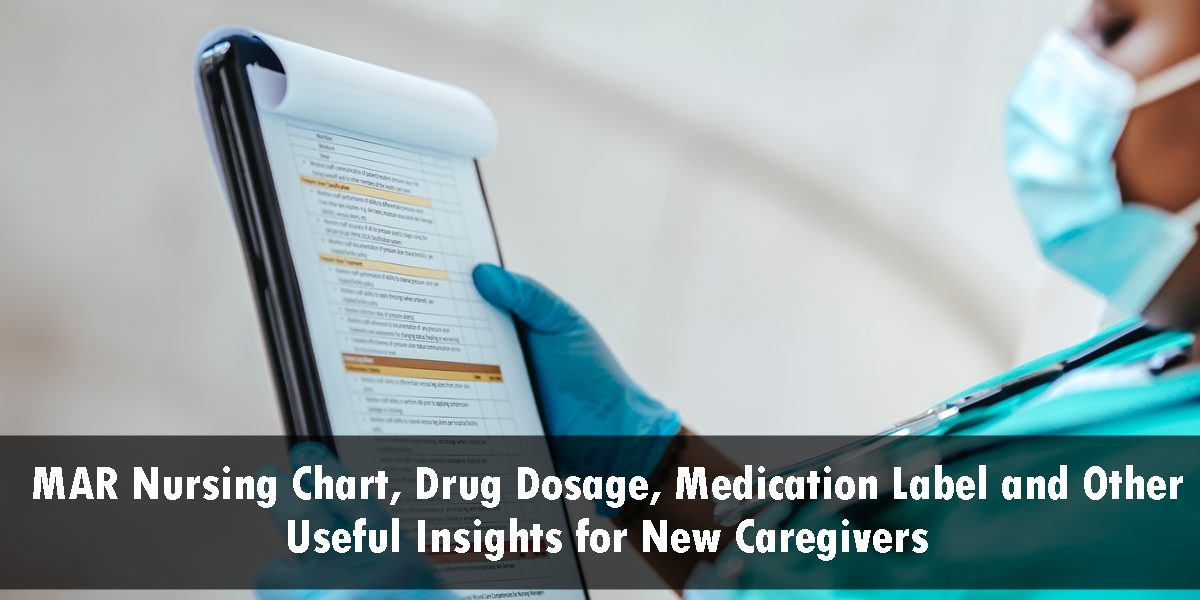In the typical day of a caregiver, as much as one third of the time may be spent recording and maintaining medication records. Additional time is spent reviewing MAR nursing charts or trying to access data about a resident that must be somewhere in the previous MAR nursing charts. To provide quality care, caregivers need access to important data at the right time and at the right place – which is why many care homes in the UK are shifting from MAR charts to Electronic Medicine Administration Record System or eMAR. The electronic medical records software ensures that the medication is administered reliably. It is easy to use and can integrate pharmacy and MAR records. Check this useful read on how eMAR can help care homes ensure safe drug administration.
If you are new to caregiving, here we discuss a few useful insights on safe drug administration. So, keep reading!
1. Safe drug administration starts with a thorough knowledge and understanding of each medication
- If you have any doubts/queries regarding medication therapy, resolve them before administering a medication.
- Before administering a medication, you must have the following information:
– Route of the medication
– Therapeutic effects of the medication
– Reasons the resident is prescribed the medication
– Normal therapeutic dosage of the medication time
– Understanding the medication label
2. Dosage: The dosage refers to the amount of medicine prescribed for administration. It is determined by the GP after taking into consideration different factors such as age, weight and sex. Other factors that determine the dosage of a medication include:
- Physical and emotional condition of patient
- The type of disease
- Presence of more than one disease
- Resident’s medical history and known allergies
- Safest medication administration method, route, time, and amount to achieve the desired maximum result
3. Medication label: An understanding of the information provided on the label is essential to safe medication administration. A medication label provides important information to caregivers which include:
- the name and address of the manufacturer
- the brand name
- the generic name
- active ingredient
- the dosage strength in a given amount of the medication
- frequency of administration
- the route of administration
- precautions and warnings
- the expiration date for the medication
- inactive ingredients
- storage directions
- Instructions for mixing
4. Understand the “Rights” of medication administration
– Right Medication –
The medication administered is the medication prescribed
– Right Dose –
- Ensure that the dose mentioned is appropriate for the resident
- Double-check calculations if you have doubts
- Be aware of the usual dosage range of the medication
– Right Time –
- Administer the medication at the right frequency and at the right time prescribed
– Right Route –
- Always administer the medication by the prescribed route
- Before administering the medicine, make sure that the route is safe for the resident
– Right Resident –
- Ensure that the medication is given to the intended resident
- Before administering the medication, check the resident’s identification band
- Know the caregiving facility’s name alert procedure when residents have the same or similar last names
– Right Resident Education –
- Educate the resident about the medication – tell them why they are receiving the medication, the intended effects of the medication and precautions.
– Right Documentation
- Document medication administration after giving it, not before
- If the medication administration time differs from the prescribed time, note the time on the MAR nursing chart. Note the reasons why the medication was given at a different time
- If a medication is not administered, follow the caregiving facility’s policy for documenting the reason
– Right to Refuse –
- The resident has the right to refuse medication
- As a caregiver, you must inform the residents of the potential consequences of drug refusal. Also, inform the resident’s refusal to the general physician.
– Right Evaluation –
- You must conduct follow-up after medication administration. Ask the resident questions such as did he/she experience any adverse side effects? Was the desired effect achieved?
If you are looking for more tips on caregiving, you can check this useful read.







